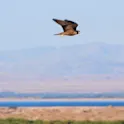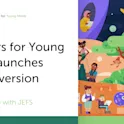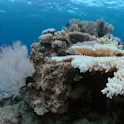
Featured news
11 Oct 2023
Peregrine falcons set off false alarms to make prey easier to catch
by Angharad Brewer Gillham, Frontiers science writer Image: US Fish and Wildlife Service Pacific Southwest Region, public domain Can clever predators manipulate prey into taking bigger risks, making them easier to hunt? Scientists have found that, by carrying out attacks which force Pacific dunlins into exhausting evasive maneuvers, peregrine falcons increase the likelihood of successfully hunting those dunlins later. The prey birds are tired out or forced to forage at more dangerous times. Predators must eat to survive — and to survive, prey must avoid being eaten. One theory, the Wolf-Mangel model, suggests predators could use false attacks to tire prey out or force them to take bigger risks, but this has been hard to show in practice. Now, scientists observing peregrine falcons have found evidence that they deliberately exhaust their prey to improve later hunting success. “Although predators are imagined as clever in novels and movies, like the velociraptors in Jurassic Park, empirical biologists are generally not inclined to give much credence to such ideas,” said Dr Ronald Ydenberg of Simon Fraser University, lead author of the study in Frontiers in Ethology. “I have often been puzzled when watching raptors by aspects of their behavior, such as prominent perching […]













